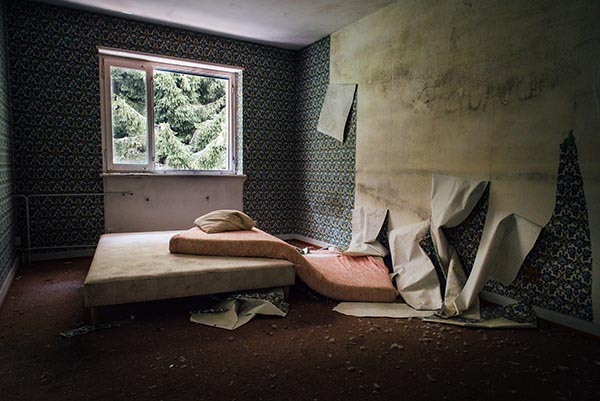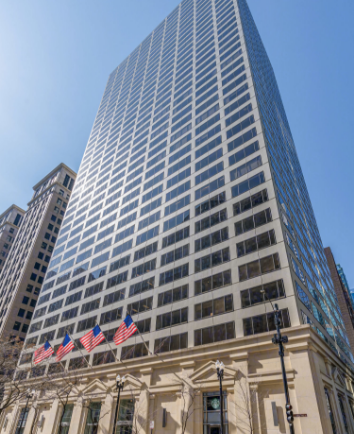Attorneys for Injuries Due to Landlord Negligence

Attorneys for Injuries Due to Landlord Negligence
When renting or leasing property, tenants have an expectation that the property is safe and that it will be properly maintained. If a landlord fails to meet these standards, it can result in property damage, serious injuries, and even death.
Victims of landlord negligence should not delay in contacting the right landlord negligence attorney: Dr. Susan E. Loggans.
Retain a Landlord Negligence Attorney
If you have suffered severe injuries or your loved one was killed due to a landlord’s negligence, obtain legal counsel right away. An experienced landlord-tenant attorney can help you get fair compensation for financial, emotional, and physical losses.
Call (312) 201-8600, fill out our contact form below, or visit our contact page to schedule your free, no-obligation consultation with our personal injury attorney.
We represent clients on a contingency fee basis—meaning you pay nothing unless you win.
Overview of Landlord Negligence Lawyer
Types of Landlord Negligence
Illinois Landlord-Tenant Laws
Landlord Negligence FAQs
What to Do If Your Landlord is Negligent
Find the Best Landlord Negligence Lawyer
Types of Landlord Negligence
Landlords can be held liable for any injuries suffered on the premises if those injuries were the result of the landlord failing to maintain an adequate standard of care.
Some of the most common types of landlord negligence claims involve:
- Negligent security
- Slip and fall accidents
- Failure to maintain property
- Negligent repairs
- Dangerous common areas
- Hazardous conditions, including lead paint and asbestos

Illinois Landlord-Tenant Laws
Illinois state law outlines the following responsibilities for both tenants (renters) and landlords, to ensure everyone’s safety and well-being.
Tenants’ Rights and Responsibilities
- You should demand a written lease to avoid future misunderstandings with your landlord.
- You must pay your rent on time.
- You must keep the rental unit clean and undamaged.
- You are responsible for any damages beyond normal wear and tear.
- You must pay the utility bill if the lease makes you responsible.
- You may not alter the rental unit without your landlord’s approval.
- You must give written notice when you intend to move if you don’t want to lose your security deposit. Normally, a 30-day notice is sufficient, unless your lease agreement requires a longer period.
- The Illinois Retaliatory Eviction Act prohibits your landlord from evicting you for complaining to any governmental authority (housing inspector, human rights commission, etc.).

Landlords’ Rights and Responsibilities
- Must provide adequate living conditions.
- Must make all necessary repairs.
- Must keep the rental property in compliance with state and local health and housing codes.
- May set the amount of rent and security deposit.
- May charge a reasonable fee for late rent payments.
- May make reasonable rules and regulations.
Landlord Negligence FAQs
What is considered negligence by a landlord?
Negligence occurs when the property owner fails to take reasonable steps to provide a safe living environment at their rental property. This failure can lead to property damage and personal harm to tenants and visitors.
How much compensation is awarded for landlord negligence?
Damages awarded in landlord-tenant disputes vary depending on factors like the extent of the negligence, the extent of the property damage and tenant injury, and whether the renter also contributed to the injury-causing accident. Damages that may be awarded include punitive damages, economic damages, and noneconomic damages.
Some civil lawsuits against negligent property owners have led to hundreds of thousands of dollars in damages awarded to victim
What do you have to show to win a premises liability case against a landlord?
To be awarded damages in court in a premises liability case, you will need to prove the following:
- The landlord had a duty to provide a safe living space.
- The landlord failed to provide that living space through negligence or malice.
- That failure directly led to serious injury or property damage.
What should I do if my landlord's negligence results in injury or property damage?
If your landlord failed to maintain their rental units and you suffered because of it, you should contact a law firm right away to discuss your legal options.
Who is responsible if there is a fire at my rental unit?
Who’s liable for a fire in a rental unit depends on the exact cause of the fire.
- If the fire resulted due to a landlord’s failure to maintain the property, including installing fire protection measures, the landlord may be considered at fault.
- If the fire resulted from a tenant’s actions, the tenant may be liable. For example, if a renter leaves a hot stove unattended, the renter could be liable.
- In some cases, the fires may be caused by a combination of landlord and renter negligence.
- In other cases, fires may be the result of non-human causes, sometimes called “acts of God.” For example, if a lightning strike hits an apartment building and starts a fire, neither the landlord nor the tenant would be considered at fault.
- If the fire was caused intentionally by a third party, the arsonist would be considered liable.
What steps should I take before contacting a landlord negligence attorney?
Before seeking legal representation for landlord-tenant disputes, take the following steps:
- Document communications with the landlord, showing you have consistently brought issues to their attention (and they didn’t remediate the issue adequately or at all).
- Collect evidence, including photos and videos, of potential hazards or damage.
- Contact witnesses and collect their testimonies.
- Document all financial burdens related to the negligence, including medical expenses.
- Have a copy of the lease agreement handy.
What to Do If Your Landlord is Negligent
If your landlord is negligent to the point that you fear personal harm or property damage—or if you have already experienced it—contact qualified landlord-tenant lawyers.
Steps you should take include:
- Documenting communication between yourself and the landlord.
- Collect visual evidence, such as photos and videos, of the damage or potential hazards.
- Document all financial burdens related to the negligence.
- Do not speak to an insurance company until retaining legal representation.

Find the Best Landlord Negligence Lawyer with Susan E. Loggans & Associates
Landlords have a legal obligation to provide reasonably safe housing. Susan E. Loggans & Associates fights vigorously for the rights of tenants, holding landlords accountable for not doing so.
If you or a loved one has suffered injuries or death due to a landlord’s failure to live up to their responsibility to provide a safe, well-maintained property, our experienced legal landlord negligence attorney can help you receive the compensation you deserve.
